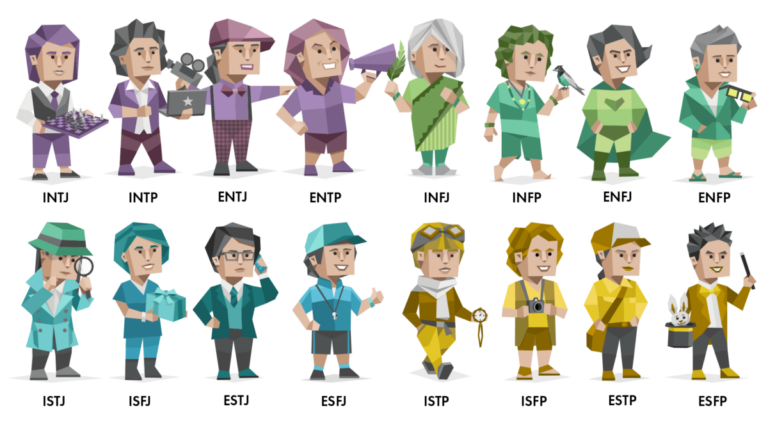The ability to skillfully interact with others can be your decisive advantage on the path to professional success.
- On the importance of interpersonal communication in a professional environment
- How to present yourself correctly at an interview?
- The influence of communication skills on successful teamwork
- How to develop communication skills?
- Managing Conflict and Maintaining Work Relationships: The Key to a Positive Work Climate
In this article, I’ll cover key aspects of soft skills that will help you not only make a lasting impression on potential employers, but also accelerate your career growth. Join us to learn how effective communication and a deep understanding of human relationships open doors to new opportunities and build a successful professional life.
On the importance of interpersonal communication in a professional environment
Interpersonal communication plays a key role in the professional world. This is the basis for creating the trusting relationships necessary for effective teamwork and successful employment. Communication skills help you express ideas clearly, persuasively, and build relationships, which are critical to career advancement.
Experts emphasize that employers value communication skills as much as technical skills. After all, this allows employees to effectively solve problems and overcome conflicts. Developing soft skills is an investment in your professional success.
To achieve better results at work and advance in your career, take the time to develop your communication skills.
How to present yourself correctly at an interview?
First impression is often a key factor in an interview. It’s not just what you say, but also how you say it. Using confident body language helps present yourself as a competent candidate.
- Start with a handshake: A firm but not overly strong handshake helps create a positive first impression.
- Eye Contact: Making eye contact demonstrates your interest and confidence.
- Posture: Upright posture shows your self-confidence and professionalism.
- Smile: A friendly smile can relieve tension and show your openness.
Answers should be clear, concise and meaningful. Prepare examples of your accomplishments that demonstrate key skills for the position. Confident answers supported by examples from experience will create the image of a competent specialist who is ready to bring value to the company.
Remember: preparation is the key to success in any interview!
The influence of communication skills on successful teamwork

Mutual understanding, the ability to listen and be heard, the ability to communicate clearly and constructively are all necessary components of successful interaction between colleagues.
A team with well-established communication is able to achieve high results through effective coordination of efforts and quick resolution of emerging problems. Research shows that companies with strong communication processes are 47% more likely to outperform their direct competitors in terms of stock returns.
How to develop communication skills?
Active listening
Active listening is a process in which you fully focus on the interlocutor, answer him in a mirror and ask clarifying questions. This helps you understand your colleagues better and shows your interest in communicating with them.
Clear argumentation
State your thoughts clearly. Use a logical structure of statements. This will help avoid misunderstandings and increase the likelihood that your point will be interpreted correctly.
Nonverbal communication
Nonverbal cues are also important. Gestures, facial expressions and intonation can support or contradict your words. Learn to control these aspects to convey messages more accurately.
Feedback
Constantly sharing feedback helps each team member understand their strengths and areas for improvement. Constructive criticism should be offered tactfully and with a desire to help colleagues improve their work.
Conflict management
Conflicts are inevitable in any group of people. However, the key to success is to see conflicts as opportunities for growth and development. Learn to recognize the first signs of tension and prevent it from escalating through open dialogue.
Developing communication skills is not a one-day process; it requires persistence, self-reflection and a willingness to learn both from individuals as well as from the organization as a whole. Each team member should strive to continually improve their ability to communicate effectively and be sensitive to the words of others.
It is thanks to this work on oneself that one can achieve harmony in the work process, which will directly affect the productivity of the entire enterprise.
Managing Conflict and Maintaining Work Relationships: The Key to a Positive Work Climate

Techniques for resolving work disputes:
- Active Listening: Take time to listen to all sides of the conflict. Understanding everyone’s point of view can help get to the root of the problem.
- Non-judgmental communication: Avoid criticism and judgment when discussing problematic issues. Focus on facts and feelings without assigning blame.
- Finding compromise: Work to find a solution that suits all parties to the conflict.
- Transparency of the process: Make sure that all stages of conflict resolution are clear to all participants.
- Support open dialogue: Encourage employees to share their thoughts and suggestions.
- Respect for Individuals: Show respect for all team members and value their individuality.
- Recognizing Success: Regularly recognize employee achievements; this increases motivation and creates a positive atmosphere.
Conflict management is not only a reaction to emerging controversial situations, but also proactive work to prevent potential problems by creating a favorable environment for the work of each team member.
The world is changing faster than ever, but the fundamental principles of effective teamwork remain the same: open communication, respect for each other and the pursuit of a common goal are key components to the success of any organization.












